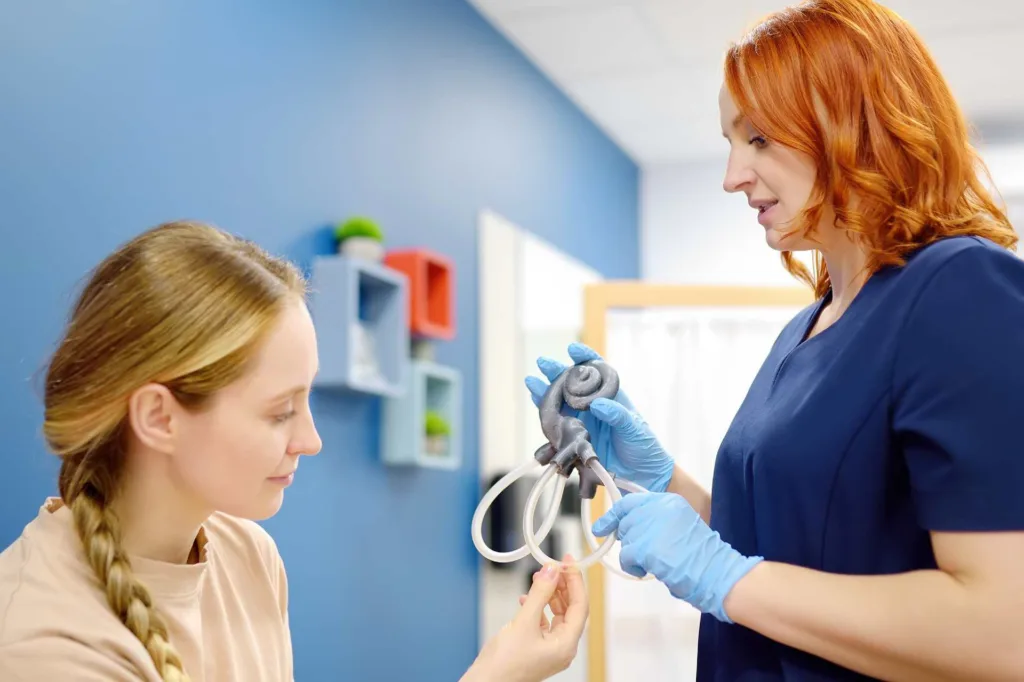Have you ever felt like the room is spinning after a car accident, even if days or weeks have passed? This feeling of dizziness and disorientation is called vertigo, and it’s a surprisingly common experience after a collision. Vertigo is a disturbance in the inner ear, which is responsible for balance. It can cause a variety of unpleasant sensations, including feeling like you’re spinning, tilting, or floating. While vertigo often appears right after a car accident, it can also develop days or even weeks later, making it a bit more confusing to connect the dots. Let’s dive deeper into why this happens and explore how treatments like physical therapy and chiropractic care can help you regain your equilibrium.
How Car Accidents Can Lead to Delayed Vertigo
Car accidents can wreak havoc on your body in ways you might not expect. The sudden impact and forceful movements can cause injuries that disrupt the delicate balance system in your inner ear. Whiplash, a common injury from car accidents, can strain the muscles and ligaments in your neck, which can irritate nerves that connect to your inner ear and lead to delayed vertigo after a car accident. Concussions, another potential consequence of a crash, can also affect the part of your brain responsible for processing balance signals, causing delayed vertigo as well.
Common Causes of Delayed Vertigo Post-Accident
There are a few reasons why vertigo might not appear immediately after a car accident. One culprit is delayed swelling. Following a collision, your body releases inflammatory chemicals to kickstart the healing process. This inflammation can take some time to build up, and when it reaches certain areas near your inner ear or balance nerves, it can trigger vertigo symptoms.
Internal bleeding is another potential cause of delayed vertigo. Minor bleeding within the head or neck might not cause immediate problems, but over time, as the blood breaks down, it can irritate surrounding tissues and nerves, leading to delayed vertigo.
The inner ear itself can also sustain damage in a car accident, though this damage might not be immediately noticeable. Tiny hair cells within the inner ear are crucial for balance, and if they are damaged, it can take some time for vertigo symptoms to manifest.
Recognizing Symptoms of Delayed Vertigo
If you’re concerned about delayed vertigo after a car accident, it’s important to be familiar with the common symptoms. These can include:
- Dizziness: This is the most prominent symptom of vertigo and can feel like spinning, tilting, or swaying.
- Nausea and vomiting: The disorienting sensation of vertigo can often trigger nausea and even vomiting.
- Balance problems: Vertigo can make it difficult to maintain balance, increasing your risk of falls.
- Headaches: Headaches, particularly those that worsen with movement, can be another sign of vertigo.
- Eye movement problems: Some people with vertigo experience nystagmus, which is a flickering or involuntary jerking of the eyes.
If you experience any of these symptoms after a car accident, especially if they develop days or weeks later, seek medical attention. Early diagnosis of delayed vertigo can help you get the treatment you need to manage your symptoms and improve your overall recovery.
Diagnosis and Treatment Options for Delayed Vertigo

Diagnosing delayed vertigo typically involves a physical examination by a doctor. They will likely ask about your medical history, the details of the car accident, and your current symptoms. Depending on the severity of your case, additional tests such as X-rays, CT scans, or electronystagmography (ENG) might be recommended to rule out other potential causes of your dizziness.
Treatment for delayed vertigo often involves a combination of approaches:
- Medication: Antihistamines or medications to manage nausea may be prescribed to help alleviate symptoms.
- Physical therapy: Physical therapy exercises can help improve balance and coordination, reducing dizziness and falls.
- Vestibular rehabilitation: This specialized form of physical therapy focuses on retraining the balance system in the inner ear.
The Role of Chiropractic Care in Managing Vertigo
While chiropractic care isn’t a first-line treatment for vertigo, it can play a supportive role in managing your symptoms. Chiropractic adjustments can help improve neck function and mobility, which may alleviate vertigo caused by issues with the nerves in your neck. Additionally, chiropractic care can address any underlying joint dysfunction that might be contributing to your dizziness.
Recovering From Delayed Vertigo With Affordable Killeen Chiropractic
If you’re struggling with delayed vertigo after a car accident, you don’t have to go through it alone. Here at Affordable Killeen Chiropractic, our team of experienced professionals is dedicated to helping you find relief. We offer a variety of services, including chiropractic therapy, spinal decompression, active rehabilitation, and on-site X-rays to help diagnose and address the root cause of your vertigo.
Don’t let delayed vertigo hold you back from living your life. Schedule an appointment today or learn more about how we can help you manage your symptoms and get back on your feet.

